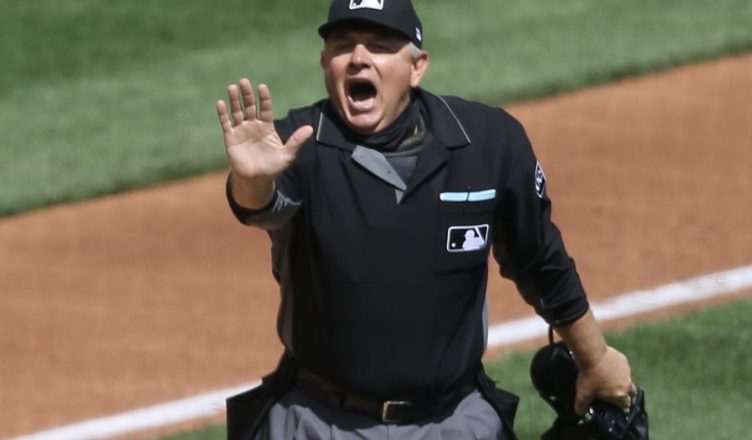By Bill McCallum, NCAA Baseball Umpire Advisor
Handling people in difficult situations is perhaps the greatest challenge to those in our
profession. No two situations are the same, and the dynamics change quickly with personalities and
rapidly unfolding events. A technically strong umpire can make costly mistakes in challenging
interpersonal situations. That’s why it is essential to both prepare and reflect on our behavior
management and come away with a lesson every time, regardless of the outcome.
Before an umpire can manage the behavior of others around him, he must first manage his own
behavior. He must always maintain the discipline to be respectful, courteous, and firm. He must avoid
placing a hand on anyone, whether consciously or subconsciously. He must avoid sarcasm, certain
phrases, and gestures that might agitate and escalate a situation.
The best umpires also master advanced people skills that help build rapport, such as matching body
language, volume, tone, and rate of speech of the other person while in conversation. These umpires
are approachable, good listeners, and they engage people with sincerity. Long relationships and
familiarity most often help, but it is important to continue building new professional rapport
and credibility all the time.
When it is time to “lay down the law,” the best umpires are firm, look people in the eye, and back up
what they say. They are careful not to box themselves in with too many words when having an
exchange, especially over a long distance, such as home plate to the dugout. They understand when to
apply the warning or just an acknowledgment as a prelude to the warning. They understand the optics
of an exchange involving someone yelling from a distance, and they know how to demonstrate
body language that is proportional and proper in their responses.
Equally challenging and important is a skilled exit from a face-to-face encounter that has gone too
long. A clear and firm warning must be in place before walking away. A good umpire understands the
importance of building a strong case in real time using appropriate words and actions, as he may have
to write a report after the game ends.
Perhaps most difficult of all: a great umpire must overcome the belief that he must always fully
explain his side of the story on the field. The umpire’s job is not about getting the last
word! When a coach begins walking away, the best umpires know to stop talking and let him go.
These fundamentals, when taken lightly, can unnecessarily extend confrontations and sometimes end
with ejections.
Some situations require a team approach to solving issues. It is important to understand your role in a
particular situation and on a particular crew. Understanding who and when to engage going into a
crew conference and coming out of a crew conference requires some advanced thinking and
discussion.
One’s ability to handle people is certainly not limited to the diamond. An umpire’s level
of professionalism is measured and judged all the time, and the standards are very high.
Professionalism is a mindset baked into a good umpire’s being. It never goes to sleep.
There is a lot to consider as it relates to handling people, and there is no “one size fits all”
approach. Umpires must know their environment as well as the rules and policy parameters under
which they work. This aspect of the game requires skills that are just as important as the technical
skills required to officiate plays on the field. Strong skills help to build more confidence. Confidence
is the foundation for managing adrenaline and performing better under pressure. The only way to
expand and improve these skills is to reflect on one’s experience, then welcome some healthy
discussion. No matter how experienced, the best umpires challenge themselves to be better today than
they were yesterday.
